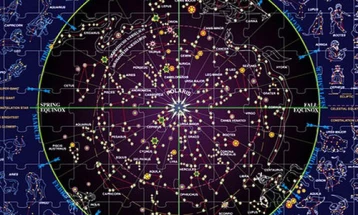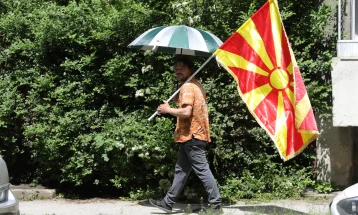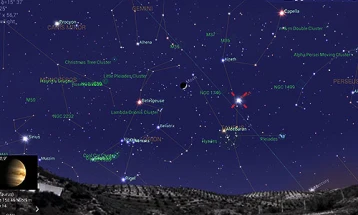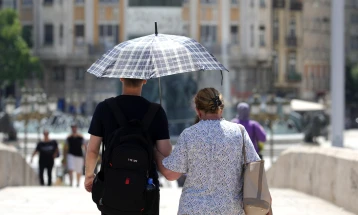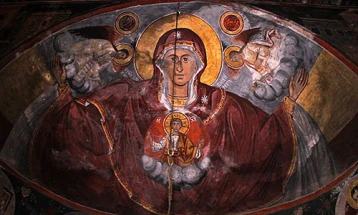Today in history
- 475 – The Roman general Orestes forces western Roman Emperor Julius Nepos to flee his capital city, Ravenna.
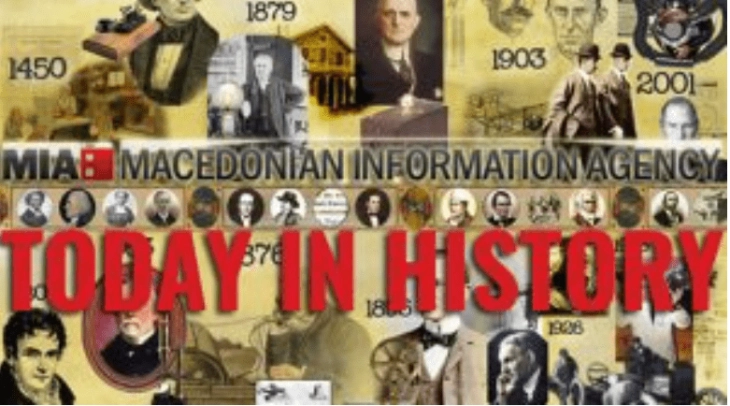
28 August 2024 (MIA)
475 – The Roman general Orestes forces western Roman Emperor Julius Nepos to flee his capital city, Ravenna.
489 – Theodoric, king of the Ostrogoths defeats Odoacer at the Battle of Isonzo, forcing his way into Italy.
663 – Silla–Tang armies crush the Baekje restoration attempt and force Yamato Japan to withdraw from Korea in the Battle of Baekgang.
1189 – Third Crusade: The Crusaders begin the Siege of Acre under Guy of Lusignan.
1521 – The Ottoman Turks occupy Belgrade.
1524 – The Kaqchikel Maya rebel against their former Spanish allies during the Spanish conquest of Guatemala.
1542 – Turkish–Portuguese War (1538–1557): Battle of Wofla: The Portuguese are scattered, their leader Christovão da Gama is captured and later executed.
1565 – Pedro Menéndez de Avilés sights land near St. Augustine, Florida and founds the oldest continuously occupied European-established city in the continental United States.
1609 – Henry Hudson discovers Delaware Bay.
1619 – Ferdinand II is elected emperor of the Holy Roman Empire.
1640 – Second Bishop’s War: King Charles I’s English army loses to a Scottish Covenanter force at the Battle of Newburn.
1648 – Siege of Colchester ended when Royalists Forces surrender to the Parliamentary Forces after eleven weeks, during the English Civil War.
1709 – Meidingnu Pamheiba is crowned King of Manipur.
1789 – William Herschel discovers a new moon of Saturn: Enceladus.
1810 – Battle of Grand Port: The French accept the surrender of a British Navy fleet.
1830 – The Baltimore and Ohio Railroad’s new Tom Thumb steam locomotive races a horse-drawn car, presaging steam’s role in US railroads.
1833 – The Slavery Abolition Act 1833 receives Royal Assent, abolishing slavery through most the British Empire.
1845 – The first issue of Scientific American magazine is published.
1849 – After a month-long siege, Venice, which had declared itself independent as the Republic of San Marco, surrenders to Austria.
1859 – The Carrington event disrupts electrical telegraph services and causes aurora to shine so brightly that they are seen clearly over the Earth’s middle latitudes.
1861 – American Civil War: Union forces attack Cape Hatteras, North Carolina in the Battle of Hatteras Inlet Batteries which lasts for two days.
1862 – American Civil War: Second Battle of Bull Run, also known as the Battle of Second Manassas. The battle ends on August 30.
1867 – The United States takes possession of the (at this point unoccupied) Midway Atoll.
1879 – Cetshwayo, last king of the Zulus, is captured by the British.
1898 – Caleb Bradham invents the carbonated soft drink that will later be called “Pepsi-Cola”.
1901 – Silliman University is founded in the Philippines. The first American private school in the country.
1909 – A group of mid-level Greek Army officers launches the Goudi coup, seeking wide-ranging reforms.
1913 – Queen Wilhelmina opens the Peace Palace in The Hague.
1916 – World War I: Italy declares war on Germany.
1917 – Ten Suffragettes are arrested while picketing the White House.
1924 – The Georgian opposition stages the August Uprising against the Soviet Union.
1929 – Workers of the mine Lojane, near Kumanovo, went on strike. In their honour, August 28 was declared Miners’ Day in Macedonia.
1931 – France and the Soviet Union sign a treaty of non-aggression.
1937 – Toyota Motors becomes an independent company.
1943 – World War II: In Denmark, a general strike against the Nazi occupation starts.
1944 – World War II: Marseille and Toulon are liberated.
1963 – March on Washington for Jobs and Freedom: The Reverend Martin Luther King, Jr. gives his I Have a Dream speech.
1979 – An IRA bomb explodes at the Grote Markt in Brussels.
1988 – Ramstein airshow disaster: Three aircraft of the Frecce Tricolori demonstration team collide and the wreckage falls into the crowd. Seventy-five are killed and 346 seriously injured.
1990 – Iraq declares Kuwait to be its newest province.
1990 – An F5 tornado strikes the Illinois cities of Plainfield and Joliet, killing 29 people.
1991 – The publishing house “Nova Makedonija” presented the first edition of the weekly sports magazine “Skok.”
1996 – At a celebration of the Dormition of the Mother of God near Berovo, nine people were killed and around 40 injured by a thunderbolt.
1996 – Charles, Prince of Wales and Diana, Princess of Wales divorce.
1998 – Pakistan’s National Assembly passes a constitutional amendment to make the “Qur’an and Sunnah” the “supreme law” but the bill is defeated in the Senate.
1998 – Second Congo War: Loyalist troops backed by Angolan and Zimbabwean forces repulse the RCD and Rwandan offensive on Kinshasa.
2003 – An electricity blackout cuts off power to around 500,000 people living in south east England and brings 60% of London’s underground rail network to a halt.
2013 – China and Russia walk out of a UN Security Council meeting after the US pushes for immediate action against Syria’s use of chemical weapons.
2017 – Kenya brings in world’s toughest ban on plastic bags with possible US$38,000 fine and four years in jail.
2019 – Climate change activist Greta Thunberg arrives in New York after sailing across the Atlantic in an emissions-free voyage.
